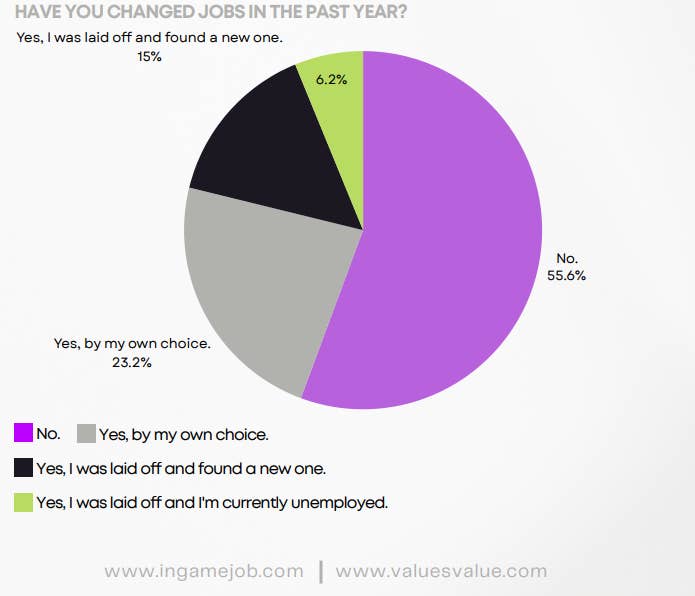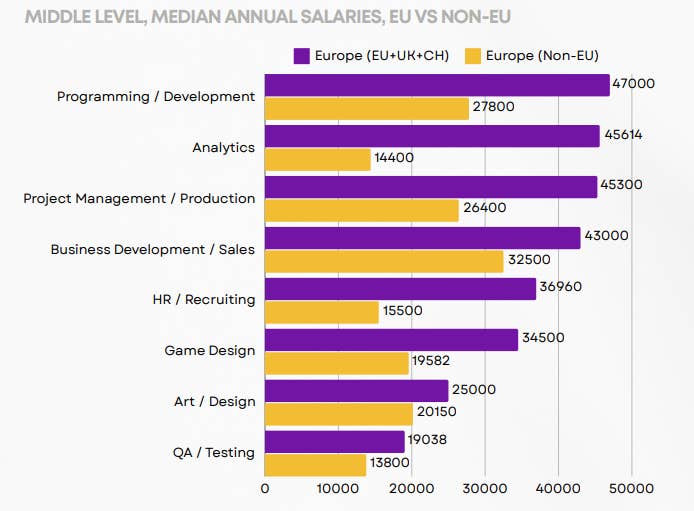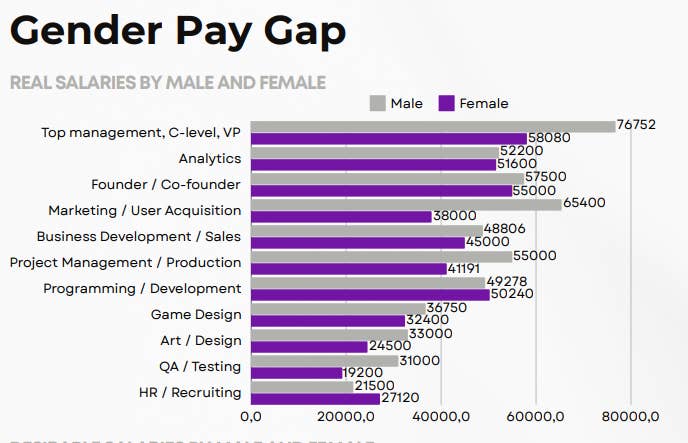Around 21% of European games professionals have been laid off in the past year

Around 15% of games industry workers in Europe were laid off and subsequently found a new job in 2023/2024, with 6.2% laid off and still searching for work, according to the latest Big Games Industry Employment Survey.
The study is conducted every year by recruitment agency Values Value and career platform InGame Job (more on the methodology below), and the latest edition has also found that 10% of games professionals in Europe took jobs in another industry last year.
The survey has also found that some jobs at games studios were more prone to layoffs in the region, including HR, recruitment, QA, and artists.

The Big Games Industry Employment Survey also looked at median salaries, highlighting a discrepancy between European Union nations, and non-EU nations on the continent, across all roles and seniority.
As an example, here are the median salary ranges for middle level jobs in games (all salaries are gross, annual, and in Euros):

The median salary for 2024 has overall increased across the board for most positions and levels of seniority, though there are exceptions for instance for HR/recruiting roles, with salaries down year-on-year.
“For some positions, there’s been a noticeable drop in salaries compared to 2023,” said Tanja Loktionova, founder of Values Value, and co-founder of InGame Job. “This is particularly true for senior level HR professionals, recruiters, QA specialists, mid-level business development roles, and nearly all juniors in our sample. And we found a correlation – according to our data, specialists in these professions were the most affected by layoffs over the past year.”
The report also highlighted the important gender pay gap between men and women across roles in games, as seen in the graph below:

Looking at the most common reasons for dissatisfaction at a job, burnout, unprofessional management, and poor work-life balance were the most common reasons given.
Remote working is still at a high, with 57% of companies in the EU working remotely, versus 75% for European countries outside the EU.
Meanwhile, 54% of the game developers who responded to the survey said they use AI in their daily work and find it helpful. Last year, only 37% said so.
The study was conducted across over 50 countries in Europe from March to June 2024, for a total of 1,832 respondents. The latter were predominantly men, at 58%, with women representing 24% of respondents, and 19% of them clicking ‘Other’ or preferring not to answer the question about their gender.
Respondents were divided as follows in terms of seniority: 9% junior, 29% middle, 30% senior, 28% lead. Around 19% of the people who participated in the survey had over ten years of experience in games.
Source link : Gamesindustry


